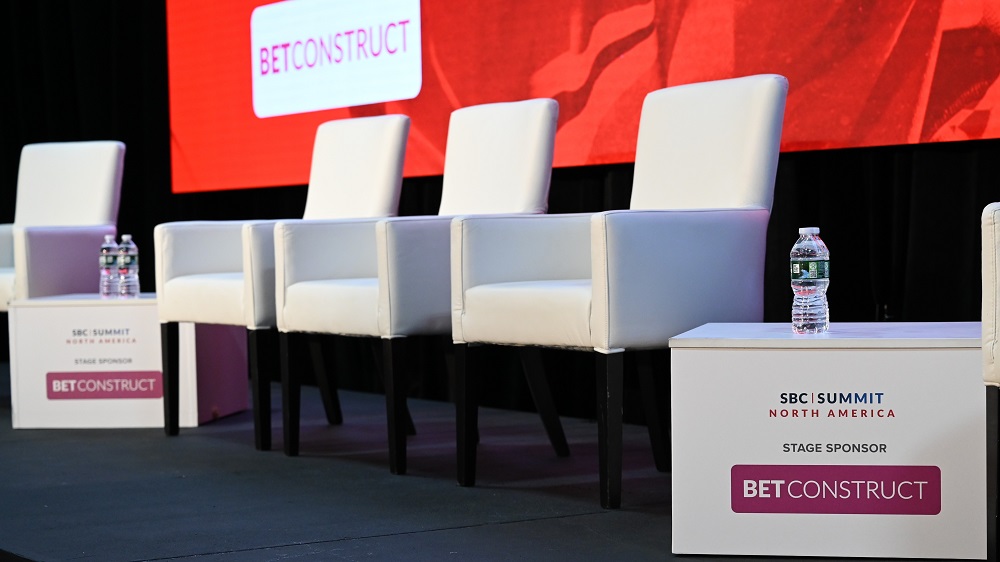Innovation, responsible gaming, industry self regulation, the black market, and two DFS firms being the dominant igaming forces across the US, that was the path trodden over a 40 minute discussion on one day of this week’s SBC Summit North America.
In a panel entitled ‘building market-ready igaming strategies,’ Dan Phillips, CEO and Founder at NEL Advisory, kicked things off by quizzing a panel on the complex nature of getting the activity onto the ballot of regulators, particularly when it comes to retail and tribal concerns.
As Todd Cravens, President and CEO of Galaxy Gaming, and Michael Bauer, CFO/CGO of Greentube, touched upon the importance of advertising and the crucial role of responsible gambling protocols, Craig Brown, Head of Delivery at Incubeta, took a look from a lobbying standpoint.
“I think from a lobbying perspective, it’s about talking to the states about how that money is going to be used to help reduce impact, and then look at that with the inflation side of things,” he said
“So speak to the general public about how it’s going to impact their pocket that’s really going to make what this all is all about politicians that’s going to that’s going to be what most politicians listen, is speak to them about money and speak to them about tax implications, in my opinion, that’s, that’s what’s really going to help.”
As Phillips moved things along by noting that “this is all about money,” glances were switched towards the offshore market, where the all too familiar themes of zero tax and player protection were touched upon.
“Do you think the operators and regulators actually realise how much is going offshore?” probed the NEL Advisory founder; an issue that was first picked-up by Bauer.
“I don’t think I don’t think you have a clue how big that is” it was noted on the “tremendously huge” black market, with it adding that “I’m not 100% sure if the regulators are aware of the size of the problem”.
“Do you think the operators and regulators actually realise how much is going offshore?”
Dan Phillips, CEO and Founder at NEL Advisory
With Brown noting the importance of “having one complete experience for the consumer,” Phillips reflected on a past elephant in the room and fears that online would steal the business of retail enterprises when initially launching sometime ago.
“So I would I take a little bit of a different approach,” Cravens continued. “I mean, if we would have said 10 years ago, there’s two fantasy football companies that are going to be the two dominant players in igaming in the states, people probably would have looked at you cross eyed.
“So we have 75 per cent of the igaming revenue coming from three entities, right. And only one of them has an affiliation with bricks and mortar really, at this point, you have a little bit with the DraftKings on some of the stuff that they’re doing. But even BetMGM is a JV.
“And my opinion is I think you’ll start to see some of those people accelerate. So I think there’s a bit of a catch up in regards to what do the retail operators really want to do? Does it become more of a partnership? How do they go out there and build their brand? Are they willing to go out there and spend the wacky crazy marketing dollars that all these other guys are doing to capture customers right now?
“I think a lot of those guys are having to make those decisions right now. And I don’t think it’s an easy one. So I think there’s catch up to be done.”
As the debate made steady progress down the tracks, attention was diverted towards responsible gaming.
What does the sector need to do to prepare itself to make itself more friendly to regulators, operators and the public? Phillips put to the panel, in addition to asking what operator should be doing to moderate a “frenzy” of advertising.
Cravens picked up the baton to maintain momentum, stating that “we do need to have some sort of verification of people” as well as asserting the necessity to make sure that individuals can speedily put self imposed limits in place.
“I think there will be a lot of innovation coming in”
Michael Bauer, CFO/CGO of Greentube
“We don’t have that in all places, right now, those things need to be put there,” he said. “And because we know what happens when this pendulum swings, and you start to get stories out there, someone who loses their house because they can’t pay their mortgage and things like that.
“That’s a great headline for people to get. And it just makes everything harder for us. We have a great business here. But we are the ones that need to regulate it so other ones don’t regulate it for us, in my opinion.”
However, Bauer took over by commenting that “I’m not 100% in agreement, because this pendulum can very easily swing in the opposite direction very fast.
“We’ve seen that now, a lot of markets in Europe, with a lot of restrictions on marketing and the product even, which is detrimental to the business and potential mental [health] for the player at the end of the day,” he continued
“Because we need to see it in that way that marketing channels the players into the legal offering. That is sure because the black market cannot really advertise on TV. So I think this is really necessary to have legally possible advertising.”
Adding to the discussion, Phillips acknowledged developments across Europe in Germany, Greece, Netherlands, and Sweden, as examples of “if the industry is not going to self regulate, then the regulator will come in and sort of do it for them”.
As attention turned to the prospect, and hope, that more markets will open up across the US in the not too distant future, product wise, unity was shared on the importance of innovation as this takes place.
“I think there will be a lot of innovation coming in,” Bauer stated, adding that the level of such activity could well depend on the number of fresh jurisdictions opening up.
“I think there’s going to be more consolidation at the igaming operator level”
Todd Cravens, President and CEO of Galaxy Gaming
Following the Greentube CFO/CGO emphasising that such innovation needs to come from both operator and supplier sides of the fence, Cravens took over by suggesting that such changes are “going to be really, really, really important over the next three years.”
He continued: “I think there’s going to be more consolidation at the igaming operator level, so you’re going to have four people or four companies that control 80 plus percent of the market over the next couple of years.
“And so you’re gonna have to say, well, what’s the differentiation? Right? If everyone can have every single slot from every single supplier, and they’re gonna have every single table game from a handful of us knuckleheads that make table games? And what’s the difference? Right.
“So I do think that you’re going to start to see very, very specific games for operators, because when you walk into a physical casino, you know that you’re in a Wind property, or you go across the street, you know, it’s TI, what is going to be the difference, if I go into one skin, and I go to an Evo dealer that is the same Evo dealer that if I went into somebody else’s skin, that’s where the differentiation is really going to start to have to happen.
“So what I think, or what I would love to see over the next couple of years, is really kind of ubiquity. Meaning, if I’m having a gaming session and a physical casino that happens to have a partnership with an online casino, can I pick up where I left off when I go home online and I’m playing on my iPad, while the honey bunny is watching some kind of rom com on Netflix, right?
“So I think that the push for different product and innovation is going to be very important. Otherwise, we’re just going into a commodity business with four operators. That’s not very interesting right now. So will we see progressives that are online as well as in physical casinos, and they’re also linked up to EGTs? I think we’ll see that over the next five years, we should see that type of stuff over the next five years.
“But if we don’t do that, then it’s just, you know, what’s the difference between going to a Shell gas station or a Chevron gas station, that’s what we need to get away from.”











